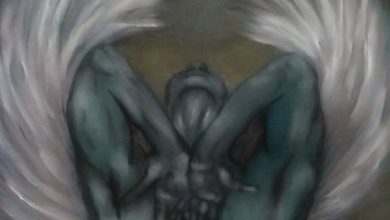
In Alice Munro’s Boys and Girls, we have an engaging story that deals with the themes of innocence, gender roles and fear. “Boys and Girls” by Alice Munro was first published as a single story in 1964 and was later collected in Munro’s 1968 collection, Dance of the Happy Shades. An unnamed girl narrates the story. The protagonist of the story is a young woman searching for her own identity. She wants to work outside with her father, but tradition and expectations force her to grow up and become a girl who works inside the house with her mother, rather than the free and independent woman she dreams of becoming. The girl is confronted with the expectations and boundaries that have been placed on her throughout the story. She tries to fight them, and Flora, a horse, provides her with some encouragement and inspiration.
Boys and Girls | Summary
The story is set in a rural Canadian home, and the narrator, a soon-to-be 11-year-old girl, describes her father’s work as a fox farmer with care. The work is seasonal and the narrator begins removing fox pelts from the small, mean, and rat-like bodies in the basement a few weeks before Christmas. The narrator mentions that her mother despised the whole pelting operation. Henry Bailey, the family’s hired man, assists the narrator’s father and teases the children. The narrator and her younger brother, Laird, were afraid of the dark. They sleep upstairs in an unfinished room where bats and skeletons, she imagines, live. To keep them safe, the children have rules that specify which parts of the room they can enter with or without the lights turned on. Both children fall asleep singing to themselves. When Laird falls asleep, the narrator begins telling herself stories, which she continues to tell herself night after night. These stories are about her when she was a little older, and they took place in a world that was recognizable as hers and offers opportunities for courage, boldness, and self-sacrifice.
The foxes, like the narrator and her brother, live in a small space. Their pen is encircled by a high guard fence, reminiscent of a mediaeval town, with a padlocked gate at night. The narrator, her father, and Laird give each of the foxes a name. Every day, the narrator’s job is to bring water to the foxes. Although everyone was familiar with the foxes, naming them did not turn them into pets or anything similar. When the narrator assists her father with the foxes, she notices that he is quiet, in contrast to her mother, who used to tell her stories. To a visitor, he refers to her as a hired hand, which she takes as a compliment. The narrator overhears her father and mother talking about her one night. They meet in front of the barn, which is unusual because her mother didn’t leave the house very often. The narrator overhears her mother console her father, telling him to wait until Laird is a little bigger so he can get some real help. Her mother longs to have help in the house; at the moment, she says how it’s not like she had a girl in the family at all.
Her mother loves her but is also her adversary. She recognizes a scheme to persuade her to spend more time at home, though she admits that it never occurred to her that her mother might be lonely or jealous. Things change the winter that the narrator is 11 years old. When her grandmother comes to visit, she starts to hear a lot more of the same theme that her mother had sounded when she was talking in front of the barn. The foxes in the family eat horsemeat from retired local horses. The narrator’s family has more horses to buy as more farmers buy tractors at the end of WWII. That year, they buy two, Mack and Flora, who will be shot in the park by the narrator’s father and Henry Bailey. The narrator and Laird sneak into the barn to watch from the loft, where they witness their father and Henry shooting the horse. After their father shoots the horse, the narrator notices that Laird has drawn a long, groaning breath of surprise, and she rushes him out of the barn.
As Laird regains his youth and obedience, she recalls a time when she put him in danger on the barn’s top beam years ago. She makes Laird promise not to tell anyone that she took him to see the horse slaughter, and then she takes him to see a movie in town. She doesn’t think about watching it two weeks later when she knows they’re going to kill Flora. In the way she thinks about her father, she is a little embarrassed and has developed a new wariness, a sense of holding back. Flora, on the other hand, breaks free and runs through the backyard when the men take her out of the barn. Flora is running to the gate when the narrator’s father and Henry Bailey shout at her to hurry up and close the gate. Rather than closing the gate, she swings it open as wide as she can. The men, including Laird, pass through the gate to apprehend Flora, and the narrator closes it. She returns to her mother, knowing that they would apprehend Flora but also fearful of the consequences, as she had never disobeyed her father before. The narrator realizes she is siding with Flora.
The narrator reflects on her and Laird’s nighttime routine as she sits upstairs on her bed in the room she had begun to decorate. They stopped singing in the evenings. Something different was happening in her nighttime stories, and instead of rescuing others, she was being rescued. When the men return, Laird brags about shooting old Flora and shows a streak of blood on his arm to prove it. During a meal, Laird informs the group that Flora’s escape was due to the narrator’s fault. The narrator begins to cry, much to her father’s surprise and embarrassment. When he asks why, she doesn’t have an answer, so he dismisses her with the phrase “she’s only a girl.” Perhaps it was true, the narrator muses at the end of the story.
Boys and Girls | Analysis
In Alice Munro’s short story “Boys and Girls,” the protagonist is a young girl growing up in Canada in the mid-twentieth century. She lives on their farm with her family, which consists of her mother, father, and younger brother Laird, and her life is marked by gender roles. Munro doesn’t give the girl a name, and as a result, the protagonist is portrayed as a person without a name. She has no sense of self-identity or power. The existence of a name for the girl’s younger brother indicates that he is more important simply because he is a boy and that he is the one in charge. The protagonist of the story is torn between her “girl” life in the kitchen with her mother and her “boy” life outside the house with her father helping out on the farm.
The story’s conflicts are the differing expectations of a girl and a boy, as well as the protagonist’s feelings about and struggle to find her own identity. The girl’s belief that she can contribute significantly to her father’s work is shattered when she discovers that she can’t. She realizes what society thinks of her and what it expects of her. The protagonist wishes to collaborate with her father on a project. She enjoys the attention she receives from her father while working on their fox farm. When a salesman arrives at the farm while the protagonist is raking the freshly cut grass, her father introduces her as his “new hired man,” to which the salesman replies,
“I thought it was only a girl.”
If it hadn’t been for the girl, the situation would have been very different. When the protagonist’s mother expresses her desire for the girl, she says this to her father.
“Wait till Laird gets a little bigger, then you’ll have a real help.”
The protagonist of the story tries hard to find her own identity and does not want to be labelled as “just a girl.” The protagonist views her mother as a person who cannot be trusted. She believes her mother is plotting
“… to get me to stay in the house more, although she knew that I hated it.”
The protagonist considers her mother’s work to be less important than her father’s. She considers the inside work to be “endless, dreary, and peculiarly depressing,” while the outside work is
“ritually significant”.
The protagonist aspires to be more than a housewife; she wants to be someone who makes a difference. This is clear when the protagonist discusses the stories she tells herself every night before going to bed. The stories are full of heroic moments, and the protagonist is the main character. The protagonist aspires to be this heroic woman in the future, but it is not her. Her family wants her to be the stereotypical girl, but she refuses. The protagonist’s search for her own identity is also reflected in her identification with Flora, the horse. Flora is set to be slaughtered as fox meat, but the horse, being powerful, rebellious, and strong, manages to flee her father. The protagonist is the only one close enough to the gate, but she does not close it when the female horse gallops toward her. The protagonist’s feelings about the horse’s disappearance are similar to her feelings about herself. She understands that there will be no wild country for her, just as Flora will not have any freedom. She is aware that
“A girl was not, as I had supposed, simply what I was; it was what I had to become.”
Boys and Girls | Themes
Themes of innocence, gender roles, and fear are all in this story. The story addresses the protagonist’s feelings about and struggles to find her own identity, as well as the varying expectations of a girl and a boy. When the girl learns that she is unable to contribute significantly to her father’s work, her hopes are dashed. She understands how society views her and what it expects of her. The narrator’s fear of her father is exemplified in the incident where she is running to the gate and her father and Henry Bailey shout at her to hurry up and close the gate. She swings the gate open as wide as she can rather than closing it. She returns to her mother, knowing that they will apprehend Flora, but also fearful of the repercussions because she had never disobeyed her father before. Her innocence and goals are thwarted by society’s expectations.
Boys and Girls | Character Sketch
Narrator – The story revolves around a young girl who is about to turn eleven years old. We see the character development of this girl as she learns the difference between boys and girls and what society expects of her throughout the story. Her dreams are dashed, and the story concludes with a stereotypical depiction of how she may end up living her life.
Larid – He is the younger brother of the narrator. We see him as an obedient little boy at first, but he soon grows up to resemble more like her father.
Father- The narrator’s father is a hard worker who wants his son to grow up quickly so he can assist him with his work. Near the end of the story, he dismisses her daughter by referring to her as “just a girl.”
Mother– The mother of the narrator is a typical housewife who adheres to gender roles and wishes for her daughter to follow in her footsteps. She makes every effort to make her stay at home and assist with household chores.
Henry Bailey- The narrator’s father is helped by Henry, a farmhand. He is a pleasant person, and the family shows their appreciation by inviting him to dinner and spending time with him.
Boys and Girls | About the Author – Alice Munroe
Alice Ann Munro is a short story writer from Canada who was awarded the Nobel Prize in Literature in 2013. Munro’s work has been credited with revolutionizing the structure of short stories, particularly in terms of its proclivity for moving forward and backwards in time. It’s been said that her stories “embed more than announce, reveal more than parade”. Her stories are written in a straightforward style that explores human complexities. Munro is best known for her short stories set in Ontario, and she has published several collections over the years, including Who Do You Think You Are? (1978); The Moons of Jupiter (1982); and Hateship, Friendship, Courtship, Loveship, Marriage (2001).



